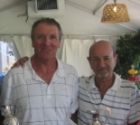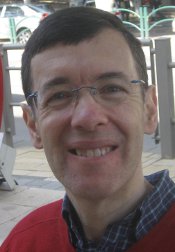
In the right circumstances, a carefully selected remedy may be very successful, sometimes in combination with other remedies.
We are living in a great scientific era. Every year multinational drug companies spend millions of dollars, pounds, euros and shekels on research and development of ever more sophisticated chemicals to fight diseases and their symptoms. It's big business. Most countries spend a sizeable proportion of their Gross Domestic Product (GDP) on prescription drugs. In 2010, the US spent $307 billion on medication. The top three were lipid regulators (statins), antidepressants and narcotic analgesics. These and many others are potentially life saving. Where would we be without insulin, antibiotics, anti-arrythmics (for heart beat abnormalities), anti-cancer drugs, and anti-rejection agents, to name but a few.
Another area where great strides have been made is in surgery. New techniques are constantly being developed with increasing success rates. Surgeons can now perform operations once considered unthinkable.
So where does Homeopathy fit in? It appears so unscientific, almost 'new age'. It cannot be measured by the standardized methods now expected - the evidence based, double blind clinical trials.
The innovator of Homeopathy was Samuel Hahnemann, born in Dresden, Germany in 1755. He was a physician. He was troubled by the fact that many of the medicines he prescribed produced nasty side effects - sometimes worse than the conditions they were used to treat. He experimented with herbs and found that quinine from the Cinchona tree and used to treat malaria, when taken by a healthy person (himself) actually produced all the symptoms of malaria - fever, sweating, shivering and weakness. He found that by greatly diluting the quinine, it could cure the symptoms that it would otherwise have produced.
But he went further. He found that a patient's constitution, that is, their physical and mental makeup, was also a deciding factor in choosing the right remedy.
To treat a patient homeopathically, we need to know the symptoms they are suffering, including any symptoms peculiar to them. We also need to know about their mental symptoms. The practitioner may need to spend an hour listening to the patient before suggesting a remedy.
Thus a remedy will be very patient-based. Two patients presenting suffering with the same condition may well need completely different remedies. No wonder that the clinical trials involving the giving of one remedy to hundreds of patients do not show outstanding results.
This is the reason why there are no true general homeopathic remedies for, say, headaches, indigestion or colds. Where these do exist they normally contain a combination or a mixture of remedies in the hope that one of these will work.
A responsible professional Homeopath should never try to replace a patient's regular prescribed medication with a homeopathic remedy or claim that homeopathy is a panacea for all medical conditions.
In the right circumstances, a carefully selected remedy may be very successful, sometimes in combination with other remedies.
Many people are living good quality lives thanks to traditional prescribed medication. Others may have conditions to which there is no real medical answer. These might include insomnia, anxiety, mild depression, generalized aches and pains or recurrent colds.
It must be stressed that any of these symptoms should initially be investigated by a medical practitioner to exclude causes that should be treated or investigated more thoroughly. If, however, no further help can be offered, Homeopathy might well be an answer.
Anthony Collins, BPharm, is a Homeopathic Pharmacist based in Raanana.
 ESRA Golf Competition 2012
ESRA Golf Competition 2012 Upside-Down Coffee – for another world. A Review
Upside-Down Coffee – for another world. A Review If I could tell you - a review
If I could tell you - a review Yad Sarah's new house in Raanana
Yad Sarah's new house in Raanana English speaking Feldenkreis
English speaking Feldenkreis Men don't Make Passes at Girls who Wear Glasses
Men don't Make Passes at Girls who Wear Glasses Anthony Collins
Anthony Collins